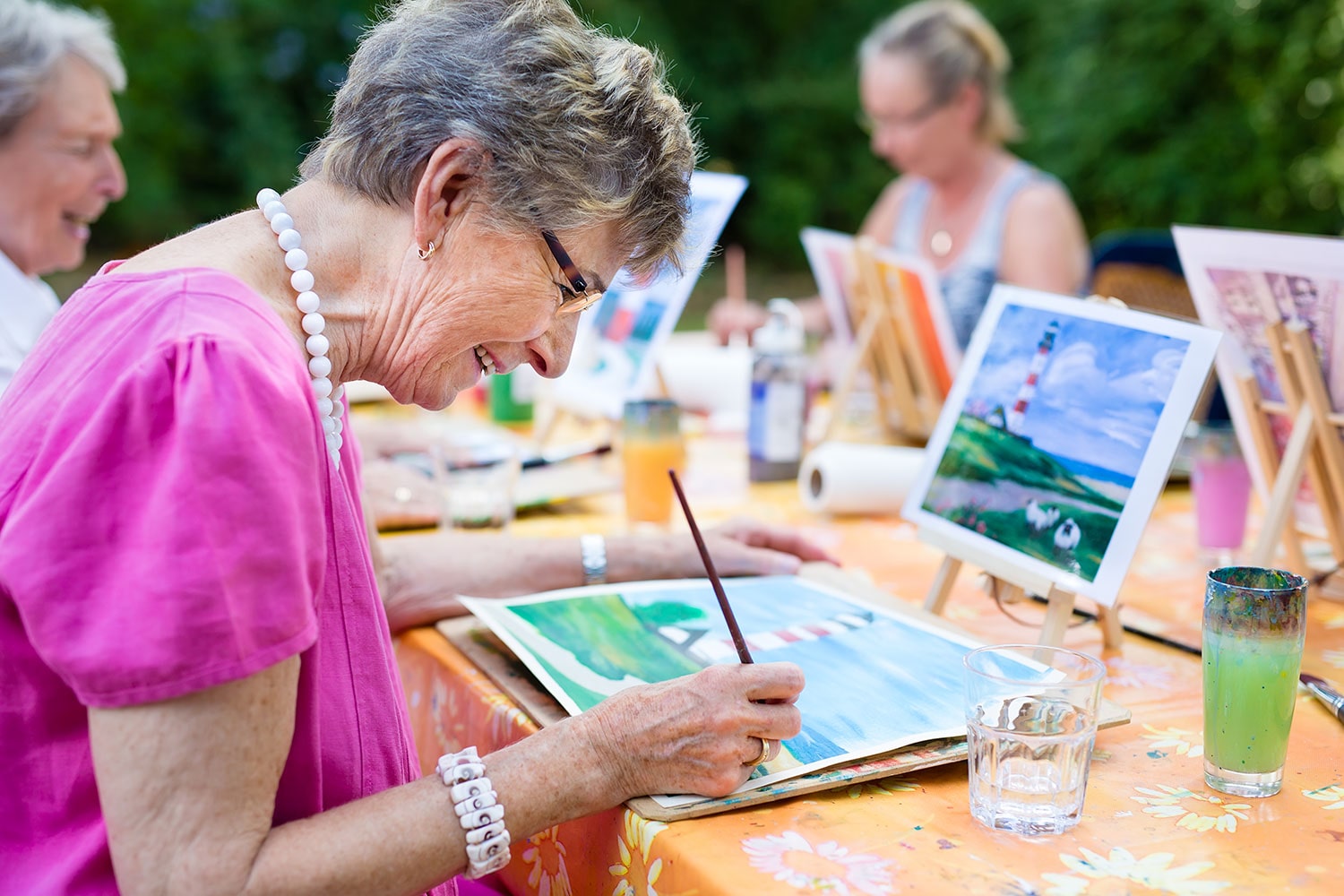IN THE AFTERMATH OF HER TREATMENT for gray zone lymphoma, Jenna Benn Shersher found herself confined to her studio apartment because of a compromised immune system. With time on her hands, she turned to blogging about cancer. Her creative side, which had been put on hold due to work, was soon back in full force.
“I wasn’t really thinking about the utility of it,” says Benn Shersher of the blog. “I just had to sit down and write.
“Now, I’m able to look back and say not only was that a part of my day-to-day, it played such a critical role in how I managed my illness, my treatment plan and survivorship,” she says. “Because I spent so much time articulating my experiences and really being up front about my fears and my thoughts, it put me further along in the healing process because I was doing so much of that heavy lifting as it was going on.”
Realizing how having a creative outlet had helped her, she founded Twist Out Cancer, an organization that provides psychosocial support for cancer survivors and caregivers via the creative arts. This work takes many forms, including its Brushes with Cancer program, which pairs artists with patients, survivors, previvors and caregivers to produce artwork based on individual experiences. The artists’ works are displayed at an art exhibit for all to see.
Jacqueline Carmody, a member of the Twist Out Cancer board, first became involved with the organization by volunteering her talents as an artist to participate in Brushes with Cancer. She noticed that those in the program rarely had the opportunity to interact with anyone other than the individual they were paired with.
Learn More About Art Therapy
Read a full-length Q&A with art therapist and licensed clinical professional counselor Jacqueline Carmody.
An art therapist and licensed clinical professional counselor, Carmody believed that group sessions could be fruitful. She decided to design a workshop format. Now known as “Twistshops,” these sessions allow participants to experiment with different ways of making art in response to cancer, followed by a group processing of the ideas and emotions the experience brings up. Besides being offered at Twist Out Cancer events, Twistshops have also been held at health care facilities and in partnership with other charitable organizations.
Carmody observes that a cancer diagnosis causes people to focus on their physical health, which can result in their mental health being overlooked. “Twistshops really allow them to dive into that part of themselves that they’ve been neglecting,” she says.
Cancer Today magazine is free to cancer patients, survivors and caregivers who live in the U.S. Subscribe here to receive four issues per year.





